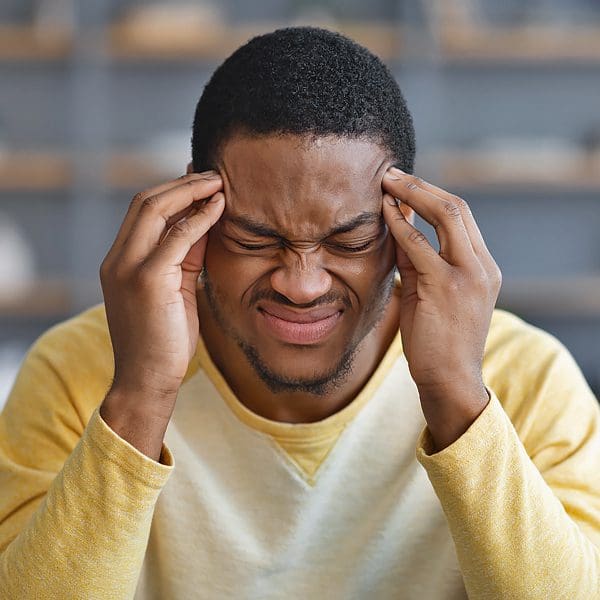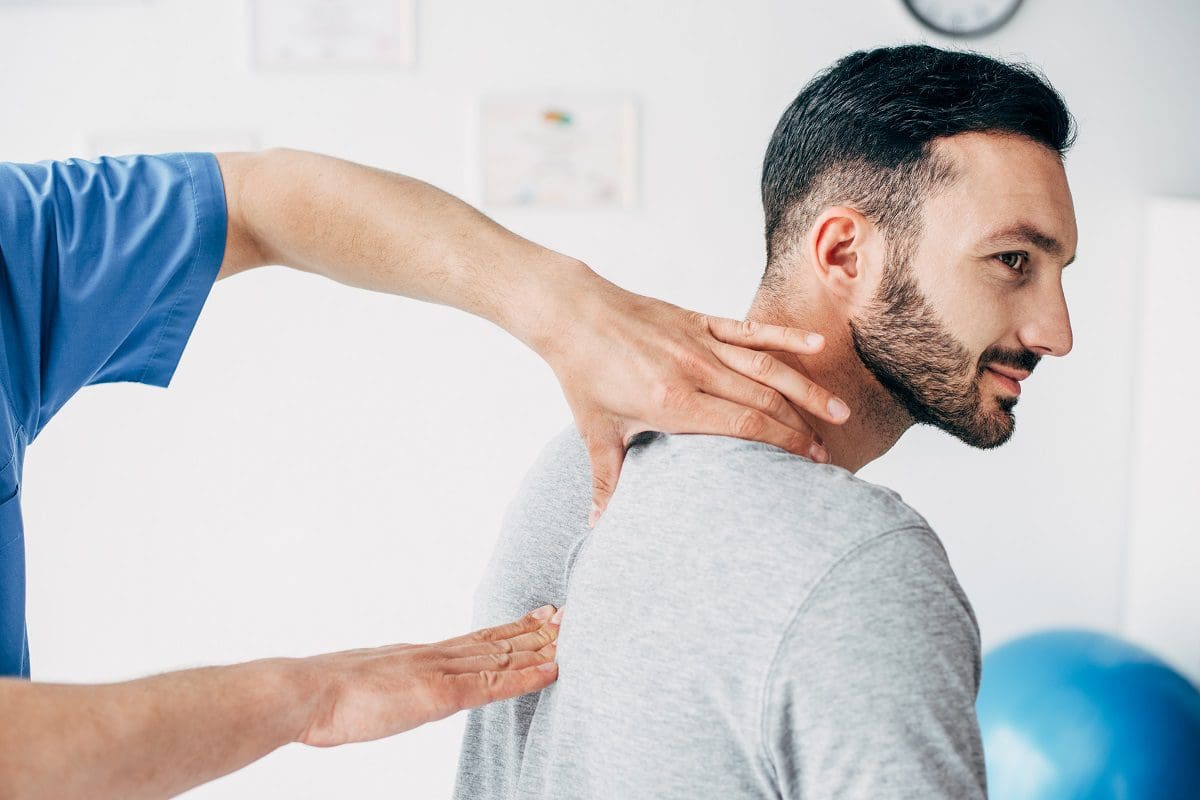Table of Contents
Introduction
Throughout the world, pain and stress are related to musculoskeletal disorders affecting joints and muscles. Many musculoskeletal disorders will have correlating symptoms with overlapping risk profiles that can make a person’s life difficult. Pain and stress have two forms: acute and chronic, which are associated with numerous everyday factors that a person goes through. Even though pain and stress can impact a person’s life, there are multiple ways to reduce these two by calming the mind and doing meditative breathing techniques to relax the body and clear the mind. What is truly amazing is that meditative breathing techniques can be combined with stretching techniques like MET (muscle energy techniques. Today’s article looks at how stress and pain affect the musculoskeletal system, the breathing connection for musculoskeletal pain, and how MET therapy is combined with breathing exercises. We utilize and provide valuable information about our patients to certified medical providers who use soft tissue stretching methods like MET to reduce musculoskeletal stress on the body. We encourage patients by referring them to our associated medical providers based on their findings. We support that education is a marvelous way to ask our providers the most interesting questions at the patient’s acknowledgment. Dr. Alex Jimenez, D.C., incorporates this information as an educational service. Disclaimer
Stress & Pain Affect The Musculoskeletal System
Have you been dealing with shoulder, neck, or back pain? What about feeling an overwhelming pressure that is causing you to stress out? Or do you feel muscle pain and joint stiffness affecting your daily routine? Many of these issues correspond with stress and pain from numerous factors associated with the musculoskeletal system. Research studies revealed that pain and stress are considered two sides of the same coin regarding the musculoskeletal system. Pain and stress are two distinguished symptoms that overlap each other when musculoskeletal disorders affect the body. Pain is a collection of emotional and sensory perceptions that work with musculoskeletal motor behavior. At the same time, stress is characterized by challenging emotional or physiological events that cause adaptive or maladaptive changes to regain homeostasis. With these two factors working together to affect the musculoskeletal system, the body may develop symptoms and cause the individual to be miserable.
The Breathing Connection For Musculoskeletal Pain & Stress
One of the major correspondents that work with pain and stress is anxiety. In “Clinical Applications of Neuromuscular Techniques,” authors Dr. Leon Chaitow, N.D., D.O., and Judith Walker DeLany, L.M.T., mentioned that anxiety aggravates all chronic pain and stress. However, there is a solution to reduce pain and stress in the musculoskeletal system. When pain and stress are combined with anxiety, it can cause breathing disorders and produce inflammatory cytokines and elevated cortisol levels to contribute. But incorporating some deep breathing techniques can help reduce stress and pain affecting the body. Research studies have revealed that slow deep breathing has been known to reduce the effects of musculoskeletal pain and help lower cortisol levels. Breathing techniques are popular in meditation and yoga practices. Deep breathing and mindfulness can help the body relax from everyday factors and calm the individual. Additional studies have mentioned that breathing exercise programs effectively improve lung function, reduce musculoskeletal pain associated with the back, and help improve a person’s quality of life.
The Natural Way To Heal- Video
Have you been dealing with musculoskeletal pain throughout your entire body? Do you feel constantly stressed throughout your whole life? Or have you felt anxious that it is making your muscles tense constantly? When many people feel constant stress and are in pain, it can lead to musculoskeletal disorders that can cause many individuals to be miserable. When this happens, overlapping risk profiles affect the musculoskeletal, organs, and nervous systems. At the same time, fortunately, numerous treatments can help reduce pain and stress that is affecting the body. Chiropractic care is non-invasive and can help many individuals be mindful of their bodies. The video above explains how chiropractic care can help realign the body from spinal subluxation and mitigate the effects of muscle pain and stress in the muscle fibers.
MET Therapy Combined With Breathing Exercises
When the body has been dealing with musculoskeletal pain on top of stress, it can cause the individual to be miserable and try to find some relief. Luckily there are available treatments that can help restore the body naturally and reduce the effects of stress and pain. Treatment like MET (muscle energy technique) and breathing exercises allow the muscles to relax and properly stretch to relieve muscle pain. Research studies have revealed that breathing exercises and MET therapy can reduce a person’s symptoms and help regain the muscle and joint range of motion. These two combined treatments can help many individuals dealing with musculoskeletal pain associated with stress to be more aware of what is affecting their bodies. They can help them along their health and wellness journey without medicine.
Conclusion
Overall, pain and stress are part of numerous conditions and disorders that can affect the musculoskeletal system and cause overlapping risk profiles that can cause the individual to be miserable. When pain and stress affect the body, it can cause the muscles, tissues, ligaments, joints, and organs to work harder than before and develop chronic musculoskeletal disorders. Fortunately, treatments like MET (muscle energy technique) and breathing exercises allow the body to relax and help reduce muscle pain symptoms affecting the body. When a person incorporates these treatments as part of their daily routine, they can become more aware of what is affecting their bodies and improve what is going on in their daily lives. This allows them to continue their health and wellness journey pain-free.
References
Abdallah, Chadi G, and Paul Geha. “Chronic Pain and Chronic Stress: Two Sides of the Same Coin?” Chronic Stress (Thousand Oaks, Calif.), U.S. National Library of Medicine, Feb. 2017, www.ncbi.nlm.nih.gov/pmc/articles/PMC5546756/.
Anderson, Barton E, and Kellie C Huxel Bliven. “The Use of Breathing Exercises in the Treatment of Chronic, Nonspecific Low Back Pain.” Journal of Sport Rehabilitation, U.S. National Library of Medicine, 24 Aug. 2016, pubmed.ncbi.nlm.nih.gov/27632818/.
Chaitow, Leon, and Judith Walker DeLany. Clinical Applications of Neuromuscular Techniques. Churchill Livingstone, 2003.
Joseph, Amira E, et al. “Effects of Slow Deep Breathing on Acute Clinical Pain in Adults: A Systematic Review and Meta-Analysis of Randomized Controlled Trials.” Journal of Evidence-Based Integrative Medicine, U.S. National Library of Medicine, 2022, www.ncbi.nlm.nih.gov/pmc/articles/PMC8891889/.
Zaccaro, Andrea, et al. “How Breath-Control Can Change Your Life: A Systematic Review on Psycho-Physiological Correlates of Slow Breathing.” Frontiers in Human Neuroscience, U.S. National Library of Medicine, 7 Sept. 2018, www.ncbi.nlm.nih.gov/pmc/articles/PMC6137615/.
Disclaimer
Post Disclaimer
Professional Scope of Practice *
The information herein on "The Breathing Connection & The MET Technique" is not intended to replace a one-on-one relationship with a qualified health care professional or licensed physician and is not medical advice. We encourage you to make healthcare decisions based on your research and partnership with a qualified healthcare professional.
Blog Information & Scope Discussions
Our information scope is limited to Chiropractic, musculoskeletal, physical medicines, wellness, contributing etiological viscerosomatic disturbances within clinical presentations, associated somatovisceral reflex clinical dynamics, subluxation complexes, sensitive health issues, and/or functional medicine articles, topics, and discussions.
We provide and present clinical collaboration with specialists from various disciplines. Each specialist is governed by their professional scope of practice and their jurisdiction of licensure. We use functional health & wellness protocols to treat and support care for the injuries or disorders of the musculoskeletal system.
Our videos, posts, topics, subjects, and insights cover clinical matters, issues, and topics that relate to and directly or indirectly support our clinical scope of practice.*
Our office has reasonably attempted to provide supportive citations and has identified the relevant research study or studies supporting our posts. We provide copies of supporting research studies available to regulatory boards and the public upon request.
We understand that we cover matters that require an additional explanation of how it may assist in a particular care plan or treatment protocol; therefore, to further discuss the subject matter above, please feel free to ask Dr. Alex Jimenez, DC, or contact us at 915-850-0900.
We are here to help you and your family.
Blessings
Dr. Alex Jimenez DC, MSACP, RN*, CCST, IFMCP*, CIFM*, ATN*
email: coach@elpasofunctionalmedicine.com
Licensed as a Doctor of Chiropractic (DC) in Texas & New Mexico*
Texas DC License # TX5807, New Mexico DC License # NM-DC2182
Licensed as a Registered Nurse (RN*) in Florida
Florida License RN License # RN9617241 (Control No. 3558029)
License Compact Status: Multi-State License: Authorized to Practice in 40 States*
Presently Matriculated: ICHS: MSN* FNP (Family Nurse Practitioner Program)
Dr. Alex Jimenez DC, MSACP, RN* CIFM*, IFMCP*, ATN*, CCST
My Digital Business Card




